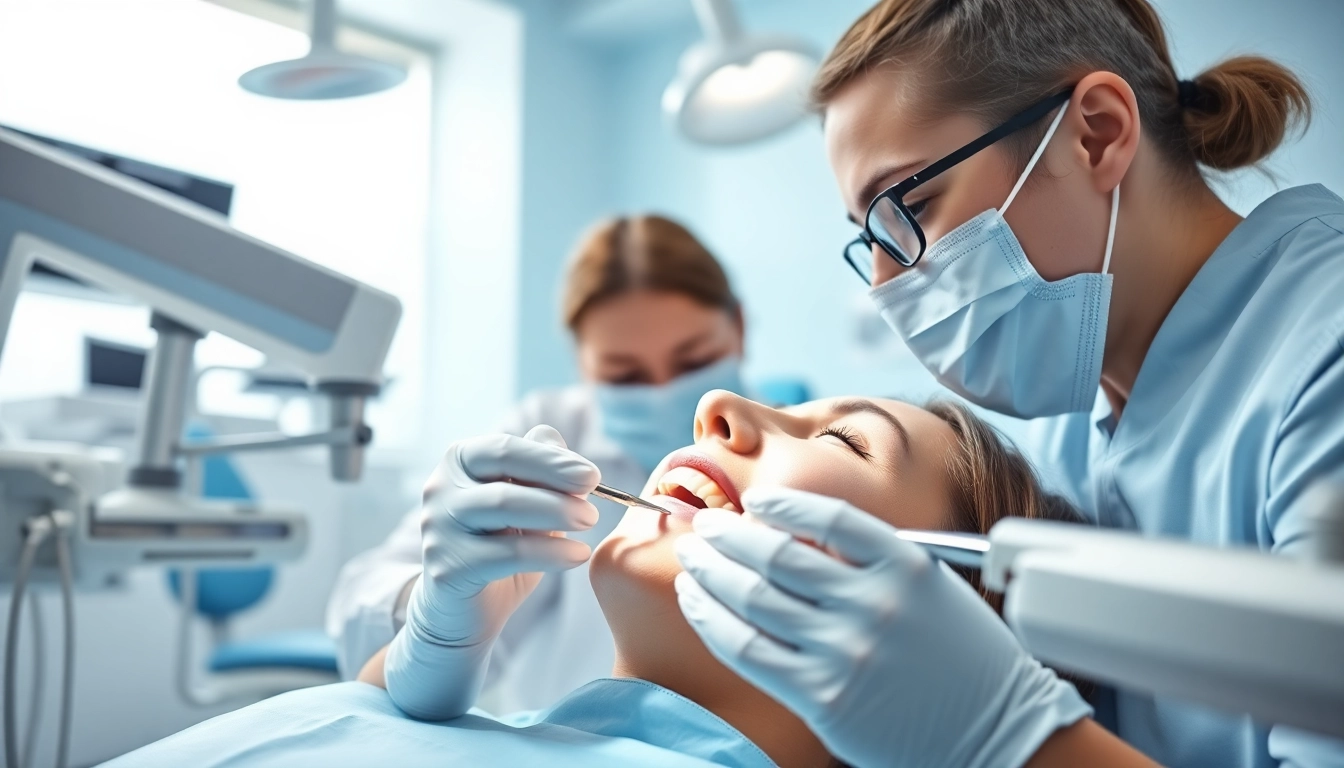What Are Dental Cleanings?
Definition and Purpose of Dental Cleanings
Dental cleanings are professional procedures carried out by dentists or dental hygienists to maintain oral health by preventing the buildup of plaque, tartar, and bacteria on the teeth and gums. This comprehensive cleaning process goes beyond daily brushing and flossing, addressing areas that may be hard to reach and ensuring the removal of stubborn deposits. The overall purpose of dental cleaning is to preserve cavity-free teeth and healthy gums while promoting fresh breath.
Regular dental cleanings are critical for preventing oral diseases, enhancing aesthetics, and ensuring the long-term health of the mouth and teeth.
Types of Dental Cleanings Offered
Different cleaning types cater to varying needs based on an individual’s oral health:
- Prophylactic Cleaning: This is a routine cleaning intended for patients with healthy mouths. It typically occurs every six months and includes the removal of plaque and tartar from surfaces above the gum line.
- Deep Cleaning (Scaling and Root Planing): This specialized cleaning is necessary for patients exhibiting signs of gum disease. It targets both above and below the gum line, thoroughly removing bacterial deposits and plaque from the roots of teeth.
- Periodontal Maintenance: This cleaning is specific for patients with a history of periodontal disease. It occurs more frequently than routine cleanings, often every three to four months, and focuses on maintaining gum health.
Who Needs Dental Cleanings?
Dental cleanings are essential for everyone, irrespective of age. However, certain groups may require more frequent visits:
- Individuals with a history of dental issues or gum disease
- Those with braces or other orthodontic appliances
- People with dry mouth or certain medical conditions that affect oral health
- Smokers and tobacco users, as they are at a higher risk for gum disease and oral cancers.
Importance of Regular Dental Cleanings
Preventing Gum Disease and Cavities
Regular dental cleanings play a crucial role in preventing cavities and gum diseases such as gingivitis and periodontitis. By effectively removing plaque and tartar buildup, dental cleanings reduce the risk of inflammation and decay. During professional cleanings, dental professionals can also identify early signs of cavities or gum disease and provide necessary interventions.
Maintaining Overall Oral Health
Beyond preventing disease, dental cleanings contribute to overall oral health by maintaining fresh breath and preventing bad odors caused by bacteria. Additionally, a clean mouth is conducive to better systemic health, as oral health is closely linked with conditions such as diabetes and heart disease.
Enhancing Aesthetics and Fresh Breath
One of the immediate benefits of dental cleanings is the enhancement of aesthetics. Professional cleanings remove stains from tobacco, coffee, and other foods, leading to whiter and brighter teeth. Furthermore, individuals can appreciate improved freshness in their breath, making social interactions more pleasant.
The Dental Cleaning Process Explained
Initial Examination and Assessment
Every dental cleaning begins with a thorough examination of the patient’s mouth. This includes assessing the current state of oral health, checking for cavities, and examining the gums for signs of disease. X-rays may be taken to visualize the health of teeth and bone structure beneath the gum line.
Steps Involved in Professional Cleaning
The professional dental cleaning process typically includes several key steps:
- Scaling: Using ultrasonic devices or hand instruments, the dental hygienist carefully scales away plaque and tartar, focusing on areas above and below the gum line.
- Polishing: After scaling, the teeth are polished with a gritty paste to remove surface stains, leaving them smooth and shiny.
- Flossing: The dental hygienist will floss between teeth to eliminate plaque accumulations and debris from hard-to-reach areas.
- Fluoride Treatment: Often, a fluoride treatment is applied to strengthen tooth enamel and provide additional protection against decay.
Post-Cleaning Care and Recommendations
After the cleaning process, dental professionals typically provide personalized advice on maintaining oral hygiene at home. This may include tailored tips for effective brushing, flossing techniques, and dietary recommendations to support oral health. Regular follow-up appointments may be scheduled based on the patient’s individual needs.
Benefits of Regular Dental Cleanings
Health Benefits Beyond Teeth
The benefits of regular dental cleanings extend far beyond the mouth. Studies have shown that oral health is closely linked to overall health; poor dental hygiene can contribute to systemic issues, including cardiovascular diseases, respiratory infections, and complications in pregnancy. Keeping the mouth healthy through dental cleanings may, therefore, lessen the risk of serious health concerns.
Cost-Effectiveness of Preventive Care
Regular dental cleanings are a form of preventive care that can save money in the long run. Investing in cleanings is far more cost-effective than treating more severe dental issues that arise from neglecting oral health. Preventive care can significantly reduce the need for fillings, crowns, or extractions, which can be financially burdensome.
Building a Relationship with Your Dentist
Establishing a rapport with your dentist through regular cleanings fosters better communication and trust. Understanding your unique oral health needs enables your dental provider to personalize care approaches, ensuring optimal health outcomes as you age. Moreover, familiarity with dental staff can help alleviate anxiety associated with dental visits.
Debunking Myths About Dental Cleanings
Addressing Pain Concerns
A common misconception is that dental cleanings are painful. While some individuals may experience sensitivity, professional cleanings typically do not cause significant discomfort. Modern dentistry employs effective numbing agents and techniques, making the experience much more comfortable than in the past.
Misconceptions About Frequency
Another myth is that regular dental cleanings are unnecessary if one practices good oral hygiene at home. In reality, even the most diligent brushers can build up plaque in hard-to-reach areas that require professional intervention. Dentists recommend cleanings at least every six months for optimal health, personalized to suit individual circumstances.
Understanding the Costs Involved
Many people shy away from dental visits due to fears about costs. However, regular cleanings can be budget-friendly, with many dental insurance plans covering preventive cleanings fully. Additionally, viewing these cleanings as an investment in long-term health can clarify their value compared to the high costs of treating advanced dental issues.




